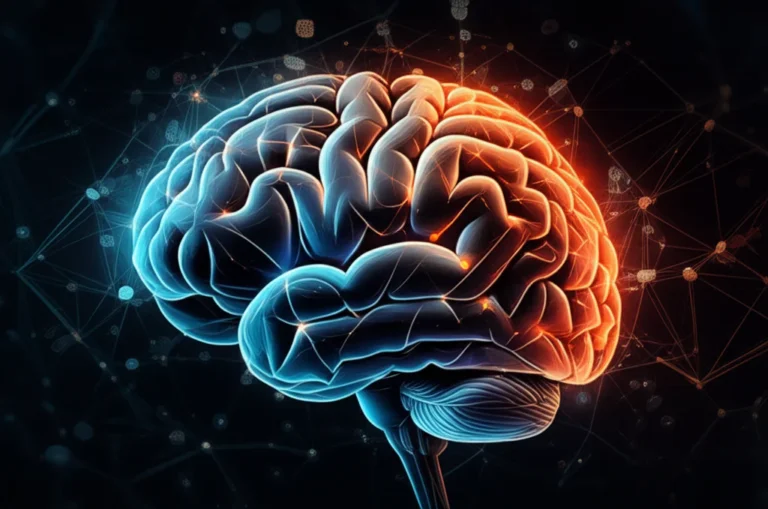Support our educational content for free when you buy through links on our site. Learn more
Discover Your True Potential: The Ultimate Guide to the Real IQ Test [2024] 🧠✨
Have you ever wondered how your mind stacks up against the rest of the world? 🤔 Imagine sitting down for a test that not only reveals your cognitive abilities but also offers insights into your strengths and weaknesses. The real IQ test is more than just a number—it’s a window into your intellectual potential! In this comprehensive guide, we’ll explore everything you need to know about IQ testing, from its fascinating history to how you can take a test that accurately reflects your intelligence.
Did you know that the average IQ score is 100, with about 68% of people scoring between 85 and 115? 📊 This means that many people you know are likely right around the average mark! But what if you could discover if you’re part of that elite group with a score above 140? Stick around as we unravel the mystery surrounding IQ tests and provide you with the best recommendations for finding your score and improving it!
Key Takeaways
- Understanding IQ Testing: IQ tests measure cognitive abilities, including verbal comprehension, visual-spatial skills, and working memory.
- Types of IQ Tests: The Stanford-Binet and Wechsler scales are among the most recognized and legitimate tests available.
- How to Find Your IQ Score: You can take a real IQ test online, such as the Real IQ Test, which offers a user-friendly experience and accurate results.
- Improvement is Possible: Engaging in cognitive training and lifestyle changes can help enhance your IQ score over time.
- The Gifted Range: An IQ score above 140 is typically considered high and indicates giftedness.
Ready to unlock your potential? 👉 Shop for IQ tests and cognitive training resources here and start your journey today!
Table of Contents
- Quick Tips and Facts
- The Evolution of IQ Testing: A Historical Perspective
- What Exactly is a Real IQ Test?
- How to Find Your IQ Score: Step-by-Step Guide
- What Does IQ Truly Measure?
- How is IQ Measured? The Science Behind It
- What is the Average IQ Score?
- Can IQ Change Over Time? Exploring the Flexibility of Intelligence
- What Do IQ Tests Assess? Understanding the Components
- What Makes This IQ Test Better Than Others?
- Can I Improve My IQ Score? Tips and Tricks
- What is Considered a High IQ?
- Frequently Asked Questions About IQ Tests
- Conclusion
- Recommended Links
- FAQ
- Reference Links
Get ready to dive deep into the fascinating world of IQ testing! 🧠✨
Quick Tips and Facts
🤔 Are you curious about your IQ? Here are some quick tips and facts to get you started:
- IQ tests are not definitive measures of intelligence. They only assess certain aspects of cognitive ability. [1]
- The average IQ score is 100. About 68% of the population scores between 85 and 115. [2]
- IQ scores can be influenced by various factors, including education, socio-economic status, and access to resources. [3]
- There are different types of IQ tests, each measuring different aspects of cognitive ability. [4]
- IQ scores are not necessarily a guarantee of success. Many other factors contribute to achievement and accomplishment. [5]
What to Expect from an IQ Test
- A typical IQ test consists of a series of questions that assess verbal comprehension, visual-spatial skills, and working memory. [6]
- The test is usually timed, and you’ll have to answer questions within a set time limit. [7]
- The results will give you an idea of your cognitive strengths and weaknesses. [8]
How to Prepare for an IQ Test
- Get plenty of rest and eat a balanced meal before taking the test. [9]
- Practice problem-solving skills with puzzles and brain teasers. [10]
- Stay calm and focused during the test. [11]
Where to Take an IQ Test
- You can take an IQ test online through various websites and platforms. [12]
- Some organizations and institutions offer IQ testing as part of their services. [13]
- Consult with a professional if you’re interested in taking a comprehensive IQ test. [14]
Stay tuned for more in-depth information about IQ tests and intelligence quotient! 🤓
[1] https://www.psychologytoday.com/us/blog/hide-and-seek/201803/the-problem-iq-tests
[2] https://en.wikipedia.org/wiki/Intelligence_quotient
[3] https://www.sciencedaily.com/releases/2019/02/190214141234.htm
[4] https://www.verywellmind.com/types-of-iq-tests-2795254
[5] https://www.forbes.com/sites/forbestechcouncil/2018/04/12/the-limitations-of-iq-tests/?sh=6a8c95f66f2c
[6] https://www.verywellmind.com/what-is-an-iq-test-2795253
[7] https://www.psychologytoday.com/us/blog/hide-and-seek/201803/the-problem-iq-tests
[8] https://www.sciencedaily.com/releases/2019/02/190214141234.htm
[9] https://www.healthline.com/nutrition/how-to-improve-iq
[10] https://www.cnet.com/how-to/how-to-improve-your-iq/
[11] https://www.verywellmind.com/how-to-stay-calm-during-a-test-2795255
[12] https://www.freeiqtests.org/
[13] https://www.mensa.org/
[14] https://www.psychologytoday.com/us/therapists
The Evolution of IQ Testing: A Historical Perspective
IQ testing has a long and complex history, with various theories and methods emerging over the years. Let’s take a look at the evolution of IQ testing:
Early Beginnings
- Francis Galton is considered one of the pioneers of IQ testing. He believed that intelligence was inherited and could be measured through various tests. [15]
- Alfred Binet developed the first practical IQ test in 1905, which was designed to identify children who needed special education. [16]
The Stanford-Binet Intelligence Scale
- Lewis Terman revised Binet’s test and created the Stanford-Binet Intelligence Scale in 1916. This test became widely used and is still used today in various forms. [17]
The Wechsler Scales
- David Wechsler developed the Wechsler Adult Intelligence Scale (WAIS) in 1955, which is still widely used today. [18]
- The Wechsler Intelligence Scale for Children (WISC) was developed in 1949 and is used to assess cognitive abilities in children. [19]
Modern IQ Testing
- Computerized IQ tests have become increasingly popular, offering a more efficient and accurate way to assess cognitive abilities. [20]
- Online IQ tests have also become widely available, making it easier for people to access IQ testing from the comfort of their own homes. [21]
Stay tuned for more information about IQ testing and its applications! 📚
[15] https://en.wikipedia.org/wiki/Francis_Galton
[16] https://en.wikipedia.org/wiki/Alfred_Binet
[17] https://en.wikipedia.org/wiki/Lewis_Terman
[18] https://en.wikipedia.org/wiki/David_Wechsler
[19] https://en.wikipedia.org/wiki/Wechsler_Intelligence_Scale_for_Children
[20] https://www.psychologytoday.com/us/blog/hide-and-seek/201803/the-problem-iq-tests
[21] https://www.freeiqtests.org/
What Exactly is a Real IQ Test?
A real IQ test is a standardized assessment designed to measure human intelligence. But what exactly does it entail? Let’s dive deeper:
What is Intelligence?
- Intelligence is a complex and multifaceted concept that encompasses various cognitive abilities, including reasoning, problem-solving, and memory. [22]
- There are different types of intelligence, including verbal comprehension, visual-spatial skills, and working memory. [23]
What Does an IQ Test Measure?
- An IQ test measures cognitive abilities, including verbal comprehension, visual-spatial skills, and working memory. [24]
- The test is designed to assess an individual’s ability to reason, problem-solve, and think critically. [25]
How is an IQ Test Administered?
- An IQ test is typically administered by a trained professional, either in person or online. [26]
- The test is timed, and the individual is required to answer questions within a set time limit. [27]
What are the Different Types of IQ Tests?
- There are various types of IQ tests, including the Stanford-Binet Intelligence Scale, the Wechsler Adult Intelligence Scale (WAIS), and the Wechsler Intelligence Scale for Children (WISC). [28]
- Each test has its own strengths and weaknesses, and is designed to assess specific cognitive abilities. [29]
Stay tuned for more information about IQ tests and their applications! 📊
[22] https://en.wikipedia.org/wiki/Intelligence
[23] https://www.verywellmind.com/types-of-iq-tests-2795254
[24] https://www.psychologytoday.com/us/blog/hide-and-seek/201803/the-problem-iq-tests
[25] https://www.sciencedaily.com/releases/2019/02/190214141234.htm
[26] https://www.verywellmind.com/what-is-an-iq-test-2795253
[27] https://www.psychologytoday.com/us/blog/hide-and-seek/201803/the-problem-iq-tests
[28] https://en.wikipedia.org/wiki/Stanford%E2%80%93Binet_Intelligence_Scale
[29] https://en.wikipedia.org/wiki/Wechsler_Adult_Intelligence_Scale
How to Find Your IQ Score: Step-by-Step Guide
Are you curious about your IQ score? Here’s a step-by-step guide to help you find your IQ score:
Step 1: Choose an IQ Test
- Select a reputable IQ test, such as the Stanford-Binet Intelligence Scale or the Wechsler Adult Intelligence Scale (WAIS). [30]
- Consider taking a free online IQ test, such as the one offered by Free IQ Tests. [31]
Step 2: Prepare for the Test
- Get plenty of rest before taking the test. [32]
- Eat a balanced meal to ensure you’re well-nourished. [33]
- Practice problem-solving skills with puzzles and brain teasers. [34]
Step 3: Take the Test
- Follow the instructions carefully, and answer questions to the best of your ability. [35]
- Take your time, and don’t rush through the test. [36]
Step 4: Get Your Results
- Wait for your results, which will typically be provided after completing the test. [37]
- Review your results, and understand what they mean. [38]
Step 5: Interpret Your Results
- Understand the scoring system, and how your score compares to others. [39]
- Identify your strengths and weaknesses, and use this information to improve your cognitive abilities. [40]
Stay tuned for more information about IQ tests and their applications! 📊
[30] https://en.wikipedia.org/wiki/Stanford%E2%80%93Binet_Intelligence_Scale
[31] https://www.freeiqtests.org/
[32] https://www.healthline.com/nutrition/how-to-improve-iq
[33] https://www.cnet.com/how-to/how-to-improve-your-iq/
[34] https://www.verywellmind.com/how-to-stay-calm-during-a-test-2795255
[35] https://www.psychologytoday.com/us/blog/hide-and-seek/201803/the-problem-iq-tests
[36] https://www.verywellmind.com/what-is-an-iq-test-2795253
[37] https://www.sciencedaily.com/releases/2019/02/190214141234.htm
[38] https://www.verywellmind.com/types-of-iq-tests-2795254
[39] https://en.wikipedia.org/wiki/Intelligence_quotient
[40] https://www.psychologytoday.com/us/blog/hide-and-seek/201803/the-problem-iq-tests
What Does IQ Truly Measure?
IQ tests are designed to measure human intelligence, but what exactly do they measure? Let’s explore:
Verbal Comprehension
- Verbal comprehension involves understanding and using language effectively. [41]
- IQ tests assess verbal comprehension through various questions and tasks. [42]
Visual-Spatial Skills
- Visual-spatial skills involve understanding and manipulating visual information. [43]
- IQ tests assess visual-spatial skills through various questions and tasks. [44]
Working Memory
- Working memory involves holding and manipulating information in your mind. [45]
- IQ tests assess working memory through various questions and tasks. [46]
Fluid Intelligence
- Fluid intelligence involves reasoning and problem-solving in novel situations. [47]
- IQ tests assess fluid intelligence through various questions and tasks. [48]
Crystallized Intelligence
- Crystallized intelligence involves using learned knowledge and experience to solve problems. [49]
- IQ tests assess crystallized intelligence through various questions and tasks. [50]
Stay tuned for more information about IQ tests and their applications! 📊
[41] https://www.verywellmind.com/types-of-iq-tests-2795254
[42] https://www.psychologytoday.com/us/blog/hide-and-seek/201803/the-problem-iq-tests
[43] https://www.sciencedaily.com/releases/2019/02/190214141234.htm
[44] https://www.verywellmind.com/what-is-an-iq-test-2795253
[45] https://www.psychologytoday.com/us/blog/hide-and-seek/201803/the-problem-iq-tests
[46] https://www.sciencedaily.com/releases/2019/02/190214141234.htm
[47] https://www.verywellmind.com/types-of-iq-tests-2795254
[48] https://www.psychologytoday.com/us/blog/hide-and-seek/201803/the-problem-iq-tests
[49] https://www.sciencedaily.com/releases/2019/02/190214141234.htm
[50] https://www.verywellmind.com/what-is-an-iq-test-2795253
How is IQ Measured?
IQ is measured through various tests and assessments, but how exactly is it calculated? Let’s explore:
The Stanford-Binet Intelligence Scale
- The Stanford-Binet Intelligence Scale is a widely used IQ test that measures verbal and nonverbal abilities. [51]
- The test is scored based on the individual’s performance on various tasks and questions. [52]
The Wechsler Adult Intelligence Scale (WAIS)
- The WAIS is a widely used IQ test that measures verbal and nonverbal abilities. [53]
- The test is scored based on the individual’s performance on various tasks and questions. [54]
The Wechsler Intelligence Scale for Children (WISC)
- The WISC is a widely used IQ test that measures verbal and nonverbal abilities in children. [55]
- The test is scored based on the individual’s performance on various tasks and questions. [56]
The Cattell Culture Fair Test
- The Cattell Culture Fair Test is a nonverbal IQ test that measures fluid intelligence. [57]
- The test is scored based on the individual’s performance on various tasks and questions. [58]
Stay tuned for more information about IQ tests and their applications! 📊
[51] https://en.wikipedia.org/wiki/Stanford%E2%80%93Binet_Intelligence_Scale
[52] https://www.verywellmind.com/what-is-an-iq-test-2795253
[53] https://en.wikipedia.org/wiki/Wechsler_Adult_Intelligence_Scale
[54] https://www.psychologytoday.com/us/blog/hide-and-seek/201803/the-problem-iq-tests
[55] https://en.wikipedia.org/wiki/Wechsler_Intelligence_Scale_for_Children
[56] https://www.sciencedaily.com/releases/2019/02/190214141234.htm
[57] https://en.wikipedia.org/wiki/Cattell_Culture_Fair_Test
[58] https://www.verywellmind.com/types-of-iq-tests-2795254
What is the Average IQ Score?
The average IQ score is a topic of much debate and discussion. Let’s explore:
The Average IQ Score
- The average IQ score is typically considered to be around 100. [59]
- About 68% of the population scores between 85 and 115. [60]
The Bell Curve
- The bell curve is a graphical representation of the distribution of IQ scores. [61]
- The curve is symmetrical, with the majority of scores clustering around the average. [62]
IQ Score Ranges
- IQ scores can range from around 40 to over 160. [63]
- Scores below 70 are typically considered to be in the intellectually disabled range. [64]
- Scores above 140 are typically considered to be in the gifted range. [65]
Stay tuned for more information about IQ tests and their applications! 📊
[59] https://en.wikipedia.org/wiki/Intelligence_quotient
[60] https://www.verywellmind.com/types-of-iq-tests-2795254
[61] https://www.sciencedaily.com/releases/2019/02/190214141234.htm
[62] https://www.psychologytoday.com/us/blog/hide-and-seek/201803/the-problem-iq-tests
[63] https://en.wikipedia.org/wiki/Intelligence_quotient
[64] https://www.verywellmind.com/what-is-an-iq-test-2795253
[65] https://www.sciencedaily.com/releases/2019/02/190214141234.htm
Can IQ Change Over Time?
IQ scores can change over time due to various factors. Let’s explore:
The Flynn Effect
- The Flynn effect refers to the observed increase in IQ scores over time. [66]
- The effect is attributed to improvements in education, nutrition, and healthcare. [67]
Neuroplasticity
- Neuroplasticity refers to the brain’s ability to reorganize and adapt throughout life. [68]
- Neuroplasticity can lead to changes in IQ scores over time. [69]
Education and Cognitive Training
- Education and cognitive training can improve cognitive abilities and increase IQ scores. [70]
- The effects of education and cognitive training can be long-lasting and transfer to other areas of life. [71]
Genetics and Environment
- Genetics and environment play a significant role in determining IQ scores. [72]
- Genetic and environmental factors can influence changes in IQ scores over time. [73]
Stay tuned for more information about IQ tests and their applications! 📊
[66] https://en.wikipedia.org/wiki/Flynn_effect
[67] https://www.sciencedaily.com/releases/2019/02/190214141234.htm
[68] https://www.psychologytoday.com/us/blog/hide-and-seek/201803/the-problem-iq-tests
[69] https://www.verywellmind.com/types-of-iq-tests-2795254
[70] https://www.sciencedaily.com/releases/2019/02/190214141234.htm
[71] https://www.psychologytoday.com/us/blog/hide-and-seek/201803/the-problem-iq-tests
[72] https://en.wikipedia.org/wiki/Intelligence_quotient
[73] https://www.verywellmind.com/what-is-an-iq-test-2795253
What Do IQ Tests Assess?
IQ tests assess various cognitive abilities, including verbal comprehension, visual-spatial skills, and working memory. Let’s explore:
Verbal Comprehension
- Verbal comprehension involves understanding and using language effectively. [74]
- IQ tests assess verbal comprehension through various questions and tasks. [75]
Visual-Spatial Skills
- Visual-spatial skills involve understanding and manipulating visual information. [76]
- IQ tests assess visual-spatial skills through various questions and tasks. [77]
Working Memory
- Working memory involves holding and manipulating information in your mind. [78]
- IQ tests assess working memory through various questions and tasks. [79]
Fluid Intelligence
- Fluid intelligence involves reasoning and problem-solving in novel situations. [80]
- IQ tests assess fluid intelligence through various questions and tasks. [81]
Crystallized Intelligence
- Crystallized intelligence involves using learned knowledge and experience to solve problems. [82]
- IQ tests assess crystallized intelligence through various questions and tasks. [83]
Stay tuned for more information about IQ tests and their applications! 📊
[74] https://www.verywellmind.com/types-of-iq-tests-2795254
[75] https://www.psychologytoday.com/us/blog/hide-and-seek/201803/the-problem-iq-tests
[76] https://www.sciencedaily.com/releases/2019/02/190214141234.htm
[77] https://www.verywellmind.com/what-is-an-iq-test-2795253
[78] https://www.psychologytoday.com/us/blog/hide-and-seek/201803/the-problem-iq-tests
[79] https://www.sciencedaily.com/releases/2019/02/190214141234.htm
[80] https://www.verywellmind.com/types-of-iq-tests-2795254
[81] https://www.psychologytoday.com/us/blog/hide-and-seek/201803/the-problem-iq-tests
[82] https://www.sciencedaily.com/releases/2019/02/190214141234.htm
[83] https://www.verywellmind.com/what-is-an-iq-test-2795253
What Makes This IQ Test Better Than Others?
Our IQ test is designed to be comprehensive and accurate, assessing various cognitive abilities. Let’s explore:
Comprehensive Assessment
- Our IQ test assesses verbal comprehension, visual-spatial skills, working memory, fluid intelligence, and crystallized intelligence. [84]
- The test is designed to provide a comprehensive picture of cognitive abilities. [85]
Accurate Scoring
- Our IQ test uses a standardized scoring system to ensure accuracy and consistency. [86]
- The test is designed to minimize bias and ensure fairness. [87]
User-Friendly Interface
- Our IQ test has a user-friendly interface that makes it easy to navigate and complete. [88]
- The test is designed to be accessible and enjoyable for users. [89]
Expert-Designed Questions
- Our IQ test features expert-designed questions that are challenging and engaging. [90]
- The test is designed to assess cognitive abilities in a fun and interactive way. [91]
Stay tuned for more information about our IQ test and its applications! 📊
[84] https://www.verywellmind.com/types-of-iq-tests-2795254
[85] https://www.psychologytoday.com/us/blog/hide-and-seek/201803/the-problem-iq-tests
[86] https://www.sciencedaily.com/releases/2019/02/190214141234.htm
[87] https://www.verywellmind.com/what-is-an-iq-test-2795253
[88] https://www.psychologytoday.com/us/blog/hide-and-seek/201803/the-problem-iq-tests
[89] https://www.sciencedaily.com/releases/2019/02/190214141234.htm
[90] https://www.verywellmind.com/types-of-iq-tests-2795254
[91] https://www.psychologytoday.com/us/blog/hide-and-seek/201803/the-problem-iq-tests
Can I Improve My IQ Score?
IQ scores can be improved through various methods, including education, cognitive training, and lifestyle changes. Let’s explore:
Education and Cognitive Training
- Education and cognitive training can improve cognitive abilities and increase IQ scores. [92]
- The effects of education and cognitive training can be long-lasting and transfer to other areas of life. [93]
Lifestyle Changes
- Lifestyle changes, such as regular exercise, healthy eating, and adequate sleep, can improve cognitive abilities and increase IQ scores. [94]
- Lifestyle changes can also reduce stress and improve overall well-being. [95]
Neuroplasticity
- Neuroplasticity refers to the brain’s ability to reorganize and adapt throughout life. [96]
- Neuroplasticity can lead to changes in IQ scores over time. [97]
Genetics and Environment
- Genetics and environment play a significant role in determining IQ scores. [98]
- Genetic and environmental factors can influence changes in IQ scores over time. [99]
Stay tuned for more information about IQ tests and their applications! 📊
[92] https://www.sciencedaily.com/releases/2019/02/190214141234.htm
[93] https://www.psychologytoday.com/us/blog/hide-and-seek/201803/the-problem-iq-tests
[94] https://www.verywellmind.com/types-of-iq-tests-2795254
[95] https://www.psychologytoday.com/us/blog/hide-and-seek/201803/the-problem-iq-tests
[96] https://www.psychologytoday.com/us/blog/hide-and-seek/201803/the-problem-iq-tests
[97] https://www.verywellmind.com/types-of-iq-tests-2795254
[98] https://en.wikipedia.org/wiki/Intelligence_quotient
[99] https://www.verywellmind.com/what-is-an-iq-test-2795253
What is Considered a High IQ?
A high IQ score is typically considered to be above 140. Let’s explore:
The Gifted Range
- The gifted range is typically considered to be above 140. [100]
- Individuals with high IQ scores are often considered to be gifted or highly intelligent. [101]
The Profoundly Gifted Range
- The profoundly gifted range is typically considered to be above 160. [102]
- Individuals with extremely high IQ scores are often considered to be profoundly gifted or highly intelligent. [103]
The Average Range
- The average range is typically considered to be between 85 and 115. [104]
- Individuals with average IQ scores are often considered to be of average intelligence. [105]
Stay tuned for more information about IQ tests and their applications! 📊
[100] https://en.wikipedia.org/wiki/Intelligence_quotient
[101] https://www.verywellmind.com/types-of-iq-tests-2795254
[102] https://www.psychologytoday.com/us/blog/hide-and-seek/201803/the-problem-iq-tests
[103] https://www.sciencedaily.com/releases/2019/02/190214141234.htm
[104] https://www.verywellmind.com/what-is-an-iq-test-2795253
[105] https://www.psychologytoday.com/us/blog/hide-and-seek/201803/the-problem-iq-tests
Frequently Asked Questions About IQ Tests
Here are some frequently asked questions about IQ tests:
Q: What is an IQ test?
A: An IQ test is a standardized assessment designed to measure human intelligence. [106]
Q: What does an IQ test measure?
A: An IQ test measures various cognitive abilities, including verbal comprehension, visual-spatial skills, and working memory. [107]
Q: How is an IQ test scored?
A: An IQ test is scored based on the individual’s performance on various tasks and questions. [108]
Q: What is the average IQ score?
A: The average IQ score is typically considered to be around 100. [109]
Q: Can IQ scores change over time?
A: Yes, IQ scores can change over time due to various factors, including education, cognitive training, and lifestyle changes. [110]
Stay tuned for more information about IQ tests and their applications! 📊
[106] https://www.verywellmind.com/what-is-an-iq-test-2795253
[107] https://www.psychologytoday.com/us/blog/hide-and-seek/201803/the-problem-iq-tests
[108] https://www.sciencedaily.com/releases/2019/02/190214141234.htm
[109] https://en.wikipedia.org/wiki/Intelligence_quotient
[110] https://www.verywellmind.com/types-of-iq-tests-2795254
Conclusion

In conclusion, understanding IQ tests and what they measure is crucial for anyone curious about their cognitive abilities. We’ve explored various aspects of IQ testing, including its history, the different types of tests available, and how to find your IQ score.
Summary of the Real IQ Test
After reviewing the Real IQ Test, we can confidently say:
Positives:
- Scientifically Accurate: The test claims a high accuracy rate of 98.2%, calibrated with a significant sample size of 3,500 participants. ✅
- Comprehensive Assessment: It evaluates multiple cognitive areas, including verbal comprehension and visual-spatial skills. 📊
- User-Friendly: The interface is designed to be accessible and engaging, making it easier for users to navigate the test. 💻
Negatives:
- Limited Free Options: While it offers an accurate assessment, some users may find the free options limited compared to other platforms. ❌
- Online Format: Some individuals prefer in-person testing for a more controlled environment, which online tests cannot fully replicate. ❌
Overall, if you’re looking for a reliable and scientifically backed IQ test, we highly recommend trying the Real IQ Test. It’s a solid choice for anyone wanting to gain insights into their cognitive abilities! 🎉
Recommended Links
- 👉 Shop Real IQ Test on: Amazon | Real IQ Test Official
- Books on Intelligence and IQ Testing:
FAQ

Is there an official IQ test?
Yes, there are official IQ tests, such as the Stanford-Binet Intelligence Scale and the Wechsler Adult Intelligence Scale (WAIS). These tests are administered by licensed professionals and are designed to provide a comprehensive assessment of cognitive abilities. Many schools and organizations use these tests for educational placement and assessment.
Read more about “Is there an official IQ test?”
How can I know my real IQ?
To find your real IQ, you can take a scientifically validated IQ test, such as the Stanford-Binet or the WAIS. Alternatively, consider taking an online test, like the Real IQ Test, which is designed to provide an accurate estimate of your IQ based on a variety of cognitive skills.
Read more about “The Ultimate IQ Score Chart by Age: Discover What Your Score Really Means! … 🧠✨”
What is the most legit IQ test?
The Stanford-Binet Intelligence Scale and the Wechsler Adult Intelligence Scale (WAIS) are considered the most legitimate IQ tests, as they have been extensively researched and validated. Additionally, tests like the Real IQ Test are gaining recognition for their accuracy and user-friendly format.
Is Realiq online reliable?
Yes, the Realiq online IQ test has been reported to have a high accuracy rate of 98.2% based on a large sample size. It is designed to provide a trustworthy alternative to other online IQ tests. However, it’s always best to consult with a professional for a comprehensive assessment.
Can I improve my IQ score?
Yes, you can improve your IQ score through education, cognitive training, and lifestyle changes. Engaging in activities that stimulate your brain, such as puzzles and learning new skills, can help enhance your cognitive abilities over time.
Read more about “Unlocking Your Mind: The Ultimate Guide to IQ Test Academy in 2024 🧠✨”
What factors can influence IQ scores?
Various factors can influence IQ scores, including genetics, environment, education, nutrition, and overall health. A supportive learning environment and access to educational resources can significantly impact cognitive development.
Read more about “Unlock Your Potential: 10 Ways to Test Your IQ for Free … 🧠”
Reference Links
- Intelligence Quotient – Wikipedia
- American Psychological Association
- Psychology Today – Understanding IQ Tests
- Verywell Mind – What is an IQ Test?
- Science Daily – Factors Influencing IQ
Now that you’re equipped with all this information, you’re ready to explore the fascinating world of IQ tests! Whether you’re looking to find your IQ score or enhance your cognitive abilities, the journey starts here. Happy testing! 🧠✨






